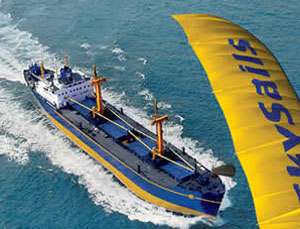Much is heard about air freight, but the vast bulk of goods are not flown around the world but shipped, and despite the fact that emissions from transport have increased steadily since 1990, the European Commission continues to exclude shipping from the Emissions Trade System (ETS) and no change to this policy is expected before 2050.
The environmental impact of shipping includes significant emissions of CO2 and sulphur, sound pollution that is detrimental to marine life and contamination of the seas through the dumping of bilge and ballast water. Fuel cell ships rely on hydrogen rather than batteries to power an electric motor – not having to rely on batteries gives them a lower weight, longer range and a quicker refuelling time.
Fuel cell ships rely on hydrogen rather than batteries to power an electric motor – not having to rely on batteries gives them a lower weight, longer range and a quicker refuelling time.
Other ways to reduce ships’ emissions include burning cleaner fuel, chemically “scrubbing” their exhaust, more efficient hull and propeller design and even the use of traction kites. A company called SkySails is developing a range of giant kites for use by diesel-powered freighters. SkySail kites, which can be as large as 320m2 are able to reduce a ship’s fuel costs by up to 35%, depending on wind conditions.
Related articles:
0 Comments View now